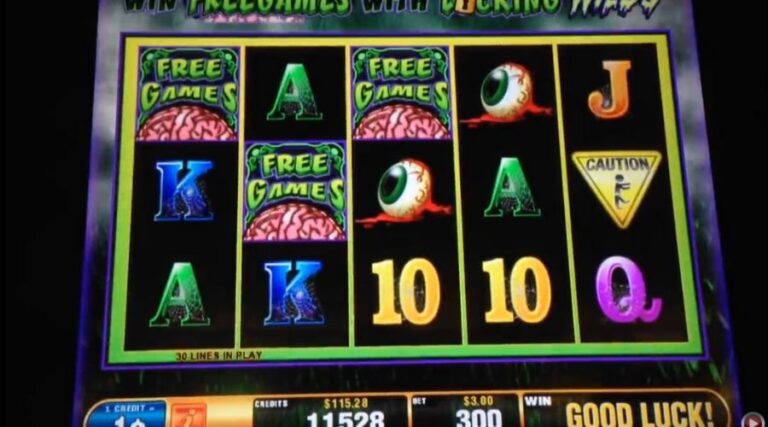1995 marcou um momento transformador na história moderna. Naquele ano, houve grandes mudanças na tecnologia, na política e nos assuntos globais. Do assassinato do primeiro-ministro israelense Yitzhak Rabin a um ponto de virada no comércio digital com o lançamento do eBay, os eventos de 1995 remodelaram vários setores.
Os marcos culturais também deixaram sua marca, com a chegada de Toy Story, da Pixar, e do PlayStation, da Sony. Ao mesmo tempo, tragédias como o atentado a bomba em Oklahoma City e o terremoto de Kobe deixaram marcas duradouras na memória global.
Contexto e Background Global
Geopoliticamente, 1995 foi moldado pelos realinhamentos pós-soviéticos, pelo processo de paz na Bósnia e pela expansão da União Europeia. Tecnologicamente, o ano começou com apenas 16 milhões de usuários de Internet em todo o mundo, um número que mais do que dobrou para 36 milhões em dezembro.
Do ponto de vista econômico, a globalização se acelerou com o lançamento da OMC. Os mercados financeiros, por sua vez, foram abalados pelo colapso do Barings Bank. Na cultura, o domínio da mídia tradicional começou a mudar com o aumento da influência das plataformas digitais, preparando o terreno para mudanças de longo prazo.
A Ascensão da Tecnologia Digital e da Internet
Em setembro de 1995, foi lançado o eBay (na época, AuctionWeb), um projeto de Pierre Omidyar que se tornou um dos principais mercados on-line de consumidor para consumidor. Em um ano, as transações totalizaram $7,2 milhões - uma prova precoce do vasto potencial do comércio eletrônico.
A Craigslist começou como uma lista de e-mails em São Francisco, oferecendo os primeiros sinais da economia de plataforma emergente. Enquanto isso, Netscape impressionou os investidores com sua IPO em agosto, atingindo uma avaliação de $2,9 bilhões, apesar da receita mínima.
Naquele mesmo mês, a Microsoft lançou Windows 95vendendo sete milhões de cópias em apenas cinco semanas e padronizando a interface moderna do desktop. Esse impulso marcou o início do boom das empresas pontocom.
Eventos Geopolíticos de 1995
Em 4 de novembro, o primeiro-ministro israelense Yitzhak Rabin foi assassinado pelo extremista Yigal Amir, semanas depois de um histórico aperto de mão na Casa Branca com Yasser Arafat. As últimas palavras de Rabin - "Eu sempre acreditei que a maioria das pessoas quer a paz" - tornaram-se um símbolo das tensões não resolvidas da região.
Em 14 de dezembro, os Acordos de Dayton encerraram a Guerra da Bósnia e definiram as fronteiras da moderna Bósnia e Herzegovina. A intervenção da OTAN pôs fim a um conflito que havia custado mais de 100.000 vidas.
No Japão, o ano começou com uma tragédia quando um terremoto de magnitude 6,9 atingiu Kobe em 17 de janeiro, matando mais de 6.000 pessoas. Em 20 de março, o sistema de metrô de Tóquio foi atacado com gás sarin pela seita Aum Shinrikyo. Ambos os incidentes levaram a grandes mudanças nas políticas de preparação para desastres e contraterrorismo do Japão.
Transições Culturais em 1995
O PlayStation da Sony foi lançado na América do Norte em 9 de setembro, vendendo 100.000 unidades em seu primeiro fim de semana. O console baseado em CD passou a vender mais de 100 milhões de unidades em todo o mundo, afastando o setor de jogos dos cartuchos e redefinindo o entretenimento doméstico.
Pixar’s Toy Story estreou em 22 de novembro como o primeiro longa-metragem totalmente animado por computador. Com um orçamento de $30 milhões e um retorno global de $373 milhões, ele preparou o terreno para que a animação CGI dominasse Hollywood.
O Windows 95 também trouxe inovações de interface, como o menu Iniciar e a barra de tarefas, para a computação cotidiana, com o apoio de uma campanha de marketing maciça de $300 milhões que incluiu uma trilha sonora dos Rolling Stones. A mudança ajudou a incorporar a computação pessoal na vida cotidiana.
Eventos Legais e Financeiros Significativos
O ano de 1995 foi marcado por vários marcos legais e financeiros importantes. Em 3 de outubro, o veredicto de O.J. Simpson cativou mais de 150 milhões de americanos, tornando-se o julgamento criminal mais assistido da história dos Estados Unidos. O caso revelou profundas divisões raciais - as pesquisas mostraram que 85% de Preto americanos apoiaram o veredicto, em comparação com apenas 32% dos americanos brancos.
Em fevereiro, as negociações não autorizadas do operador desonesto Nick Leeson causaram perdas de $1,3 bilhão, levando ao colapso do Barings Bank. O evento desencadeou novas regulamentações sobre riscos e supervisão de traders em todo o mundo.
Em 1º de janeiro, a Organização Mundial do Comércio (OMC) substituiu o GATT como principal órgão de supervisão do comércio global, que agora lida com um comércio de $5 trilhões por ano. A formação da OMC formalizou a globalização e estabeleceu padrões aplicáveis para o comércio internacional.
O atentado a bomba em Oklahoma City matou 168 pessoas, incluindo 19 crianças em uma creche. O evento levou a uma nova legislação federal e a protocolos de segurança de edifícios mais fortes nos Estados Unidos.
O PlayStation da Sony ajudou a estabelecer um ecossistema de jogos de $60 bilhões, enquanto o sucesso da Pixar com Toy Story marcou o início de uma sequência de 26 anos de domínio nas bilheterias. Essas conquistas destacaram como as inovações de 1995 moldariam o setor de entretenimento por décadas.
Nesse mesmo ano, a União Europeia se expandiu para 15 estados-membros, abrindo um mercado unificado de 370 milhões de consumidores. A fundação da OMC também padronizou as regras de comércio global, que agora afetam 98% do comércio mundial.
O historiador Niall Ferguson observou que 1995 marcou a transição da tecnologia digital do uso acadêmico e militar para a adoção em massa. O analista de tecnologia Ben Thompson destacou que empresas como a Sony e a Pixar mostraram como a combinação de hardware, software e narração de histórias poderia criar novas categorias de mídia - uma abordagem que ainda define o setor.
O Legado de 1995
A influência de 1995 continua até hoje. Suas estruturas tecnológicas sustentam a economia de comércio eletrônico de $5 trilhões, enquanto as tensões geopolíticas daquela época, inclusive as desencadeadas pelo assassinato de Rabin, continuam sem solução.
As franquias de entretenimento nascidas em 1995, como os filmes da PlayStation e da Pixar, continuam evoluindo com a popularidade global. As OMC ainda rege a maior parte do comércio internacional, agora desafiado por novas preocupações, como guerras comerciais e interrupções na cadeia de suprimentos.
Como a segurança cibernética, a mídia digital e os conflitos globais dominam as manchetes de hoje, muitos dos padrões e fundamentos podem ser rastreados até 1995. Seus eventos moldaram o mundo em que vivemos hoje e continuam a guiar sua direção no futuro.










